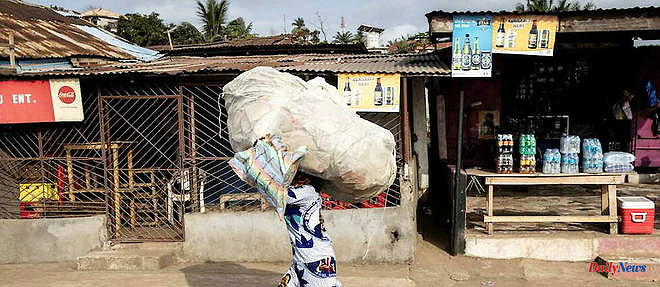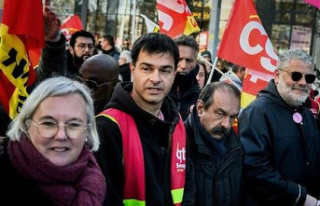At the Mobile World Congress, at the end of February in Barcelona, the great Mecca of tech and telecoms, Aminata Dumbuya Jarr came to present her start-up, Freetown Waste Transformers (FWT). His business: transforming organic waste into biogas, electricity and natural fertilizer for agriculture. The entrepreneur is looking, as president and founder of her young company, for new partnerships and funding to develop her activities.
What is it about ? Freetown Waste Transformers uses the technique of biomethanization, a natural mechanism of the decomposition of organic matter by bacteria which is activated under anaerobic conditions (without oxygen). "We put all the organic waste into a 'stomach' which digests that waste and turns it into biogas which is in turn converted into electricity. On the other side, the residues of digestion serve as fertilizers,” she explains. "This technology is the result of research by our technical partner, The Waste Transformers (TWT), based in the Netherlands," she continues.
This Dutch company is developing modular anaerobic digesters, built in 20-foot containers, producing biogas from food waste and turning it into electricity for local consumption. It develops its projects in partnership around the world, and in particular in Africa, in Sierra Leone but also in South Africa. TWT was rewarded at the COP27 in Sharm el-Sheikh, as part of the Africa Grows Green Awards, for its technical solution which makes it possible to recover food waste instead of letting it degrade in the environment, thus releasing methane, a greenhouse gas 25 times more potent than CO2.
In the capital Freetown, a first pilot unit was installed in 2020. This unit, installed at the Aberdeen Women's Hospital, has a capacity to process 600 kg of food waste per day and produce electricity. "Thanks to this, we managed to raise 3.9 million euros of capital from the Climate Fund Managers (CFM) to develop our project through five new installations", explains Aminata Dumbuya Jarr.
In a capital like Sierra Leone, where municipal services have been crippled by a civil war that has lasted more than a decade, which has also faced a frightening epidemic of Ebola, everything has to be built, to be invented. Rapid urbanization and economic growth are leading to an acceleration of waste generation, with no sustainable solution. In Freetown - 1.2 million inhabitants - the waste is mostly organic, at 84%. Garbage ends up on the streets, spills into waterways or, at best, is piled up in landfills, where it rots and emits methane gas. At the same time, with the growth of the city, the demand for energy increases.
Aminata Dumbuya Jarr is particularly attached to this project, which is also the result of a long adventure, which began with the return to her native country, with the desire and the will to invest in the development of Sierra Leone. This outstanding entrepreneur, educated in the American entrepreneurial spirit during her adolescence, left a comfortable career in California to embark on entrepreneurship in Sierra Leone.
Aware of the streets full of rubbish, the habits of burning the waste of the inhabitants, the absence of a garbage collection system, she saw an opportunity. With other partners, she launched a waste collection company in the capital, Masada Management, in the early 2010s. From this experience with Masada Management was born the start-up project with FWT. “My vision goes beyond collecting. But how to recover this waste, ”she breathes.
She took seven years to achieve this first operational phase. They now want to scale up by setting up four new facilities by May. The objective is to gradually increase the number of transformation units to 40 in the capital, with an electricity production capacity between 50 and 100 kW. These units, named Waste Transformers, will be operated by local contractors.
Placed in different locations around the city, the units will be powered by waste collected either at a particular site from a large customer, which produces a lot of food waste, or near a site that requires an electricity supply. Waste collection will then be carried out by micro-enterprises.
To make this collection possible, the start-up was led to develop a dedicated waste management application, with the support of the GSMA (the global association of mobile telephone operators). “This app works a bit on the Uber model. If a household or business needs to get rid of their organic waste, they log into the app - which is available on Apple and Google smartphone platforms - and can request waste removal by geolocating themselves on the map . You enter the waste volume, choose a collector from the list and pay a small amount via Orange Money or another e-wallet,” says Aminata Dumbuya.
In his view, the design of the project, which develops in a modular way, allows for suitable growth, which is not the case for large factories which are faced with the difficulties of organizing continuous waste collection.
Subsequently, Aminata Dumbuya Jarr plans to move to a regional dimension, with the countries of the Mano River (Côte d'Ivoire, Liberia, Guinea and Sierra Leone), or even sub-regional, with the Economic Community of West Africa (ECOWAS).












